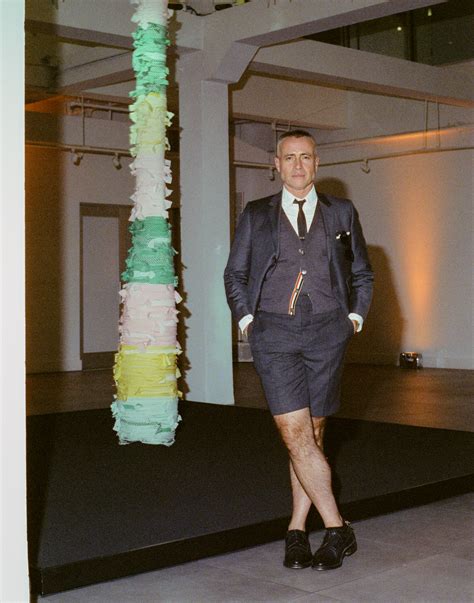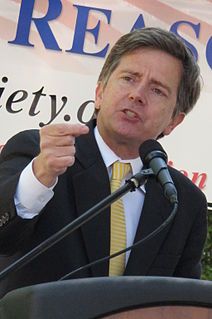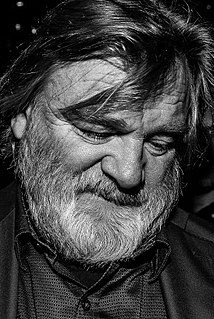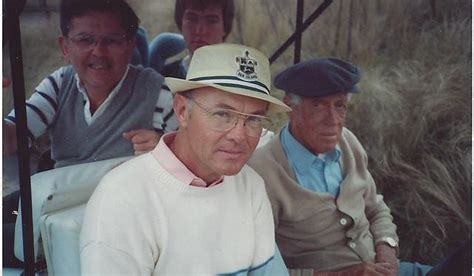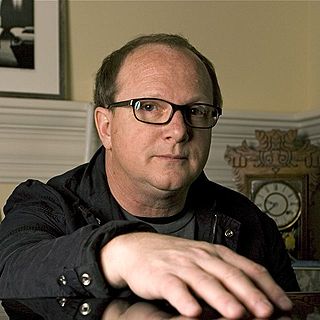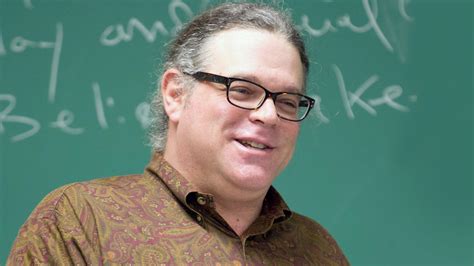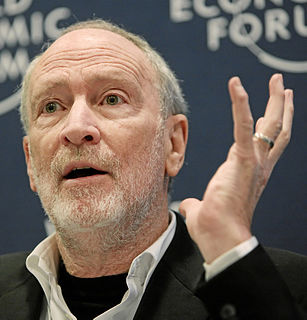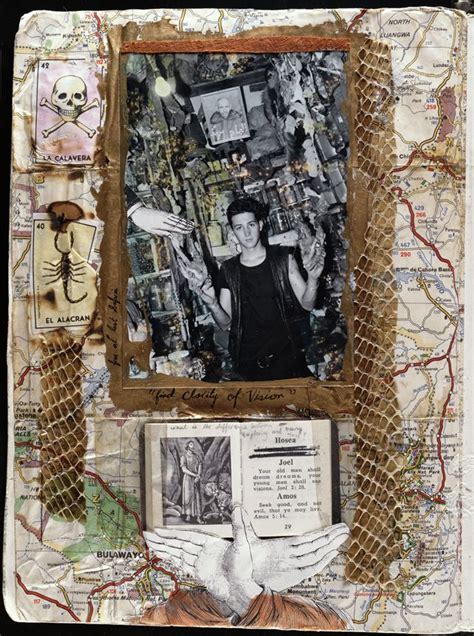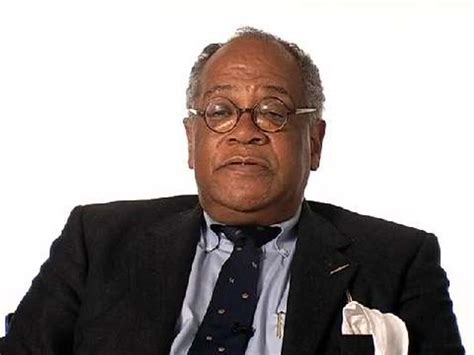Top 785 Irony Quotes & Sayings - Page 11
Explore popular Irony quotes.
Last updated on November 19, 2024.
I love the idea of things being strict and things being uniform. That's the reason why I surround each collection with humor or irony. I want to make sure that it's not too serious and that there is some element that throws it off because otherwise that would make it really boring. There's always a story that's somewhat fantastical.
If anything qualifies as an irony of history it would be this: that Marx and Engels throughout the nineteenth century wrote about America the United States as the great country of the future, of freedom and equality and a good life for the working man, and a country of revolution and emancipation, and of Russia as the great country of despotism, backwardness, savagery and superstition.
I never thought about whether film is inherently more sincere, because certainly I think if Guy Maddin had directed A Series Of Unfortunate Events, there probably could have been more of the stage-y irony that is in the books. But I was just interested to see what people would do with it, and worrying that Brad Silberling wouldn't do what I had in mind.
One interesting thing I found was that if you take an affluent modern society and collapse it during a crisis, like a war or a natural disaster, people begin relating in a more ancient, organic way. They're functioning in small interdependent groups and putting others first. And another irony is that even in terrible times, cooperating makes people feel good.
There's a grosser irony about Politically Correct English. This is that PCE purports to be the dialect of progressive reform but is in fact - in its Orwellian substitution of the euphemisms of social equality for social equality itself - of vastly more help to conservatives and the US status quo than traditional SNOOT prescriptions ever were.
Egotism exists everywhere, but it has a different flavor in England, where the tabloid culture goes much deeper. It's just the indulgence of vulgarity, the wallowing in vulgarity. As with everything English, there's a sort of irony to it. They write a great deal about these trivial people who have a certain eminence, always with a bit of, "Isn't it ridiculous that we are writing about this person?"
The gap between the inner and outer self is one I've found interesting, even essential, about the way we move through the world. In The Delivery Room, I enjoyed traveling back and forth between the perspectives of the patients and that of the therapist - with the irony that with your therapist, you are at least supposed to be your most authentic self.
Making a show is also economics. Because the irony is, or the shame of it is, you cannot create a show instantaneously. It needs to be massaged. You need to see who is relating to who. How is it working with the audience? You need to give it a chance for the audience to find it, because there are so many outlets. And the audience doesn't know where to go.
Even though I want to expand the number of ways in which skilful ironic play happens, I suspect I'm probably guilty of the same shortcoming - and I hope that, one of these days, someone will claim that my book, while it goes in a salutary expansive direction, doesn't go far enough, that there are assumptions I make that show I've missed aspects of Mann's irony and ambiguity.
We talked a lot about Donald's [Trump] record on immigration. There is irony that he has made the center of his entire campaign immigration, given that he faced a $1 million court judgment for being part of a conspiracy to hire illegal aliens, given that news broke that he is hiring foreign workers at his fancy hotel in Florida.
If you're an Indian, you could be very anxious about some of the Supreme Court's decisions, some of the decisions of policy makers, so maybe a little bit of irony there. But I think our "Savage Anxieties," when I titled the book, I really wanted to focus people on the challenge that tribes in this country, as well as indigenous peoples around the world, are confronting Western civilization with.
Sure, nothing succeeds like success. Fact is, dearest, we are fools. We cling to an ideal no one wants or cares about. I am the greater fool of the two of us. I go on eating out my heart and poisoning every moment of my life in the attempt to rouse people's sensibilities. At least if I could do it with closed eyes. The irony is I see the futility of my efforts and yet I can't let go.
I think in a way the great irony or paradox about America is that it makes it so hard for the sensitive person, the artist, the impressionable person, the person whose raison d'etre is to incarnate the creative will, rather than to just make money, and yet that extreme difficulty that the culture poses for us has created some of the best artists in the last hundred years.
For a wonderful physical tie binds the parents to the children; and - by some sad, strange irony - it does not bind us children to our parents. For if it did, if we could answer their love not with gratitude but with equal love, life would lose much of its pathos and much of its squalor, and we might be wonderfully happy.
The judges who awarded the 1980 Commonwealth Poetry Prize to my first collection of poems, Crossing the Peninsula and Other Poems, cited with approval and with no apparent conscious irony my early poem, "No Alarms." The poem was composed probably sometime in 1974 or 1975, and it complained about the impossibility of writing poetry - of being a poet - under the conditions in which I was living then.
We lost faith in authority in the '50s, up to a point, and we spawned a lot of anti-heroes in movies, which were refreshing and open. But at this point, with the distrust that's there and the disillusionment with leadership that is so acute, we need some kind of a focus on taking the irony out and taking the anti-hero element away.
I realized over the years if I'm writing about humor, irony, satire, I much prefer to do that in English. And if there is sorrow, melancholy, longing, I much prefer to do that in Turkish. Each language has its own strength to me, and I feel connected and attached to both Turkish and English. I dream in more than one language.
On the other hand, I view the whole matter from a cosmic perspective. I don't take a position. I believe that there are no more positions to take, no certainties, no facts. Many people find this confusing about my films; they say I am hiding out behind irony. But from a cosmic viewpoint, it is eternally unimportant whether one lives or not.
I'm not a culture snob. So while, of course, I think the Mozart 'Requiem' or, say, Beethoven's 'Ninth' are some of the greatest works of art in the history of humankind, that's not to say the Beatles or Queen or Simon and Garfunkel aren't brilliant, beautiful, important works of art that should be sung without a sense of irony.
We all want to be special, to stand out; there's nothing wrong with this. The irony is that every human being is special to start with, because we're unique to start with. But we then go through some sort of boot camp from the age of zero to about 18 where we learn everything we can about how not to be unique.
The sense of tragedy - according to Aristotle - comes, ironically enough, not from the protagonist's weak points but from his good qualities. Do you know what I'm getting at? People are drawn deeper into tragedy not by their defects but by their virtues. ... [But] we accept irony through a device called metaphor. And through that we grow and become deeper human beings.
The keynote of American civilization is a sort of warm-hearted vulgarity. The Americans have none of the irony of the English, none of their cool poise, none of their manner. But they do have friendliness. Where an Englishman would give you his card, an American would very likely give you his shirt.
The irony of conversing with a stranger is that your individual lives always look very different and personal, but then you strip away the nuances to find a common likeness buried inside of diversity. Take away money and geography and we’re all just flesh and blood and soul. We’re all dealing with sin and forgiveness, love and hate, glory and shame.
A careful blending of sarcasm, irony, and teasing, bickering has its own distinctive cadence and rhythm and is as difficult to master as French, Spanish, or any elective second language. Like Chinese, the fine points of bickering can be discerned in the subtle rise and fall of the voice. If not practiced properly, bickering can be mistaken for its less sophisticated counterpart: whining.
Mann is widely recognized as a master of irony and ambiguity, yet it's remarkable how quickly people foreclose options he carefully leaves open. Lots of readers - including eminent critics - jump to conclusions: that Nietzsche's Birth of Tragedy is a central background text, that Aschenbach is an inferior writer, that he's never been attracted by pubescent male beauty before, that he dies of cholera.
The irony or humor of my pieces is never really calculated, but they somehow always end up that way. Humor, especially when dealing with matters of extreme gravity, has a way of toppling set ideas and opening up new modes of interpretation. Furthermore, adding humor tends to shift the power balance.
The terrible thing about free soloing difficult routes that are within one's capacity, is the chance that faced with ultimate danger and need for ultimate self-control, one's nerve might fail and cause an error. That's irony of it - that fear could short-circiut skill, that one would die as a direcy result of being afraid to die.
Early in my career, a critic said that I needed to "explain" the irony in my work, suggesting that I needed to add text next to the images to help people understand what I was trying to say. At first I was dismayed that I wasn't making work with a clear enough message. That's when I realized that that was the exact opposite of what I wanted to do - that I wasn't responsible for a misinterpretation of my work, that there should be some ambiguity to it. They either got it, or they didn't.
In everything that can be called art there is a quality of redemption. It may be pure tragedy, if it is high tragedy, and it may be pity and irony, and it may be the raucous laughter of the strong man. But down these mean streets a man must go who is not himself mean, who is neither tarnished nor afraid.
Chess - it's a nonmainstream game. And the irony is that when you look at Hollywood, it kept using chess as the symbol of intelligence for its heroes, for its top characters, all the time. So it's from "Casablanca" to "Harry Potter." You always have chess as a very important element to demonstrate intelligence, while in normal life people think it's just a weird intelligence - like AI.
Some of Mr. Gregory's poems have merely appeared in The New Yorker ; others are New Yorker poems: the inclusive topicality, the informed and casual smartness, the flat fashionable irony, meaningless because it proceeds from a frame of reference whose amorphous superiority is the most definite thing about it they are the trademark not simply of a magazine but of a class.
The irony of multitasking is that it's exhausting: when you're doing two or three things simultaneously, you use more energy than the sum of energy required to do each task independently. You're also cheating yourself because your're not doing anything excellently. You're compromising your virtuosity. In the words of T. S. Elliot, you're 'distracted from distractions by distractions'.
The irony is that it was tougher to rent a car from Cerberus when it owned Alamo than to buy a semi-automatic. To rent a car, one had to provide ID, a drivers' license, and get insurance coverage. To buy a gun? Cash and carry, from the back of a station wagon at a gun show. No concerns about downstream liability or risk.
To move from a discussion of the early relationship between theatre and television to an examination of the current situation of live performance is to confront the irony that whereas television initially sought to replicate and, implicitly, to replace live theatre, live performance itself has developed since that time toward the replication of the discourse of mediatization.
I love Stephen Colbert and Jon Stewart because they're bringing irony back into American humor, which is a delicious treat. The entire Colbert persona of being extreme right-wing when he's not at all is highly amusing. He does it so well, but sometimes a little too well. My wife is convinced he's completely that way.
Pictures artists staged their own images or copied or cut out others already in existence. The viewer took them in separately, in sometimes paradoxical waves: an original image, then the manipulations of it, then the places where image and idea intersected. This created a crucial perceptual glitch that irony and understanding filled.
My sense, and I'm sort of guessing, is that the journalists were being classified by the government as common criminals, and the political prisoners were so resistant to being that. Always keeping [the other prisoners] as murderers, thieves, that sort of thing, which has a certain irony to it, I guess. It's a curious thing.
The irony is that one of the things people want to solve climate change is more market - more price on carbon so that markets have something to chew on when they think about climate change instead of the complete monopoly, the absurdity of allowing these guys to own the sky for free - socialise all of the costs and privatise all of the profits.
All in all, I think that out of all musical genres, the world of metal is the most escapist one. Metal is also music for people who think for themselves. I think metalheads are smart people who possess a healthy dose of self-irony and a good sense of humor, and that appeals to me. I felt a strong affinity with the scene from the first moment on.
To explore the unknown and the familiar, distant and near and to record in detail with the eyes of a child, any beauty, (of the flesh or otherwise) horror, irony, traces of utopia or Hell. Select your team with care, but when in doubt, take on some new crew and give them a chance. But avoid at all costs fluctuations of sincerity with your best people.
The dogs in our lives, the dogs we come to love and who (we fervently believe) love us in return, offer more than fidelity, consolation, and companionship. They offer comedy, irony, wit, and a wealth of anecdotes, the "shaggy dog stories" and "stupid pet tricks" that are commonplace pleasures of life.
I feel as if one would only discover on one's death-bed what one ought to have lived for, and realise too late that one's life has been wasted. Any passionate and courageous life seems good in itself, yet one feels that some element of delusion is involved in giving so much passion to any humanly attainable object. And so irony creeps into the very springs of one's being.
To some, the temporal triumph of the Christian community in the world is a sign of God's favor and the essential righteousness of the Christian position. The irony of the matter, though, is that whenever the Christian community gains worldly power, it nearly always loses its capacity to be the critic of the power and influence it so readily brokers.
There's not a lot of room for un-ironic emotion in contemporary culture. I think that irony is an important tool in dealing with the world as we find it. It's a tool of protection, but it can also be a tool of incision to get to some truth. But along the way maybe we've lost some of what I think of as the power of straightforward emotion and earnestness and seriousness.
